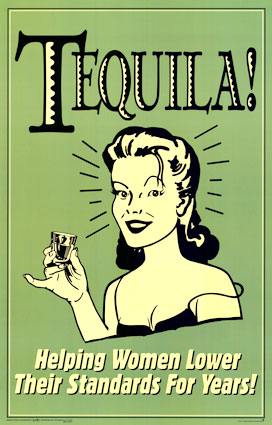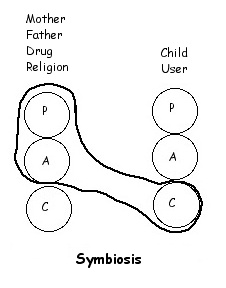I was asked a question in supervision yesterday about the drug addict and I gave an answer that I want to record and thus it is going in as a blog post to join my tome.
As I have mentioned before there are different types of drug users. One that gets a lot of notice is the drug addict type of user. This is the person who finds it really, really, really hard to stop using. Or more correctly they do not find it that hard to get off drugs but they find it really hard to stay off drugs. In their histories they have often given up on many occasions but they always start using again.
This type of drug user represents only a small number of the overall drug using population. By far the largest group is the recreational drug user who uses drugs intermittently in their life and it never causes them any real problems. Whereas the drug addict type of user ends up with numerous familial, legal. financial and health problems as a result of the drug use. Whilst they are a small group in number they are the ones who use up most of the resources - health, police, courts and so forth.

When you listen to these people talk about their relationship with the drug one finds an uncanny resemblance to the same qualities one finds in a relationship between a child and a parent. Of course a child is dependent on a parent and one finds the drug addict type of user with a similar type of dependence on the drug. So we end up with a symbiosis as such:

A young child is dependent on it’s mother and as it grows it is meant to become more psychologically separate from mother. As this happens then the dependency reduces and the original symbiosis is broken. If it does not happen then the dependency does not reduce and one develops what is called the dependent personality. This type of person can then become a drug dependent individual - the drug addict. See White for more on this. The recreational drug user does not have this personality trait and thus they do not become drug dependent in the same way.
So what is the solution? Can these people stop using drugs and if so how? My answer to that is yes they can, as some do, and there are a number of ways depending on their circumstances.
1. Switch the dependence. These people are psychologically dependent people as was described above. They can stop using by switching the dependence. Thus they still remain dependent but on something besides the drug. One sees this happen sometimes with religion. If the drug addict seeks a religious based treatment for their addiction some times they can become addicted to the religion and thus stay off the drugs.

An OK solution to my mind. For some AA can be the same. The addiction can be anything though from religion, to sport, to sex, to a person or whatever. It would seem to be much better to be addicted to religion than to heroin.
2. Grow out of it. One does not find many 40 year old heroin addicts. If they survive their twenties and thirties as most do they get tired of the highly charged lifestyle, mature a bit with age and start needing the drug less. If you are working with a 25 year old habitual heroin user the goal may be to help them get through the next decade and then they are more likely to start to tire of the lifestyle and then one has a real chance of them ceasing to use for long periods of time.
3. The psychological solution or cure. Whilst this solution is possible it does take a significant amount of time and money, thus one needs to be realistic and see that it may work for a minority but the majority are going to need to look for the other solutions.
The solution is via a transference cure where the process is as such:

In essence the client develops an attachment to the therapist and thus a symbiosis develops like shown above. The addict becomes dependent on the therapist in the same way. This growth of dependency happens in the positive transference stage. After a time that ceases and the client goes into a negative transference where they fight the therapist in many and varied ways. The separation stage begins.

This is the crucial part of the cure as this is what the person never completed in childhood. In the negative transference the client begins to psychologically separate from the therapist, thus they breakdown the symbiosis so their dependency on the therapist reduces until they basically outgrow them and don’t need them anymore. The dependent quality in their personality reduces and thus they become less dependent on the drug.
Graffiti
So... transference (the mask thing) isn't all bad then.
ReplyDeleteHello Roses,
ReplyDeleteTransference can be used for good or evil Roses. It can cause many, many problems in a marriage and even destroy one or any other sort of relationship for that matter.
On the other hand it can have significant curative powers if correctly used in therapy with a client
You Skype buddy
Tony
Well, actually, i'm waiting for someone to come on line. I've texted her - its about tomorrow (movies). Its raining like crazy and i thought i could take the work car but hubbies on call and anything could happen. I'm hoping she won't mind driving up to canberra in the rain. If not then we'll be staying home.
ReplyDeleteI wonder what i'll do tomorrow then. Hmm...
Pretty much anything i guess... Cheers
Hello Tony,
ReplyDeleteI have one kid that I am trying to help as counselor, not as therapist. He had heroin problem from his 15 to 20, and now, after one year in religious commune, he is 22, in abstinence, but I would say not stable.
He has looser type of script, probably Sisyphus - to be short there were several life situations where he blows up at the end. How can I use transference to get closer to him, and not to make some damage to his shivery state?
Thanks,
Mirko
Hello Mirko,
ReplyDeleteThe transference is going to develop the more contact that you have with him and the more that contact involves him talking about his inner thoughts and feelings. Also the more he seeks you out as a source of security for him. So you could raise these points with him so it is out in the open and state that you are willing to be that source of trust and security for him, if you are.
If that develops then slowly he will become more stable in his abstinence.
Cheers
Tony
Hello Tonny,
ReplyDeleteThanks for quick answer! As I understand, getting trust or confidence from transference implicates that client has similar feeling to at least his parents some time ago, and transfer that feeling to therapist in present. My client has disfunctional parents, and I do not know did they ever been functional or not.
Other question, do I have to do some action to support transference, or just wait to happen?
Best regards,
Mirko
Hello Mirko,
ReplyDeleteAs I said in my comment those are ways to develop transference feelings from the client to the therapist. The more the therapist keeps the relationship clinical or devoid of feeling the less transference will develop. To develop transference it is best to openly talk about the feelings the client has to the therapist and the same from the therapist to the client.
Other than that some clients quickly and rapidly develop quite strong transference feelings and others do not.
In the positive transference the client will tend to see the therapist in a favourable light. It is when the negative transference comes along that the original issues with the parents will be played out in the therapeutic relationship with the therapist.
regards
Tony